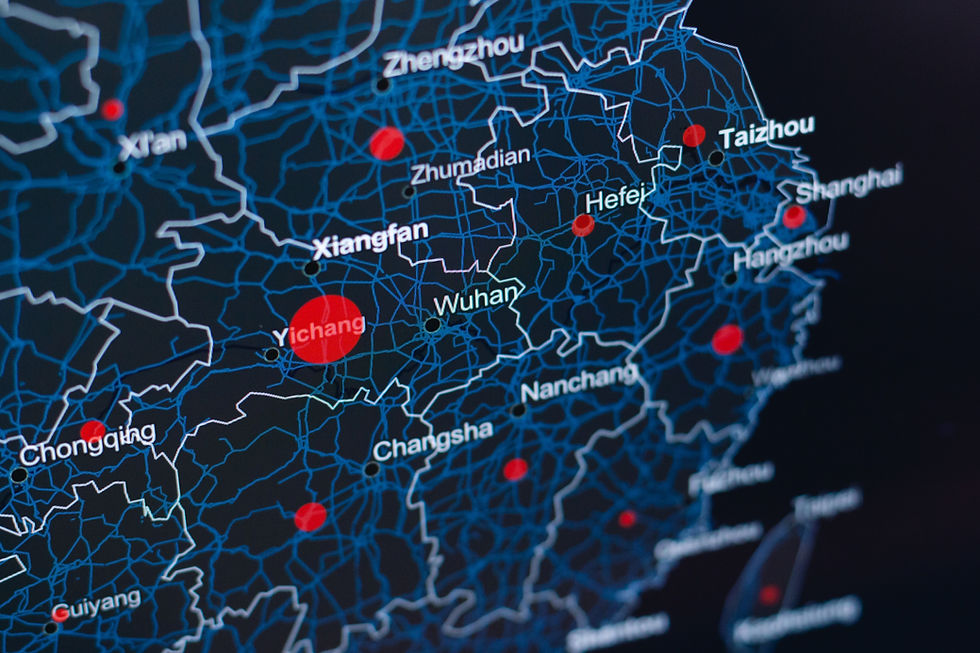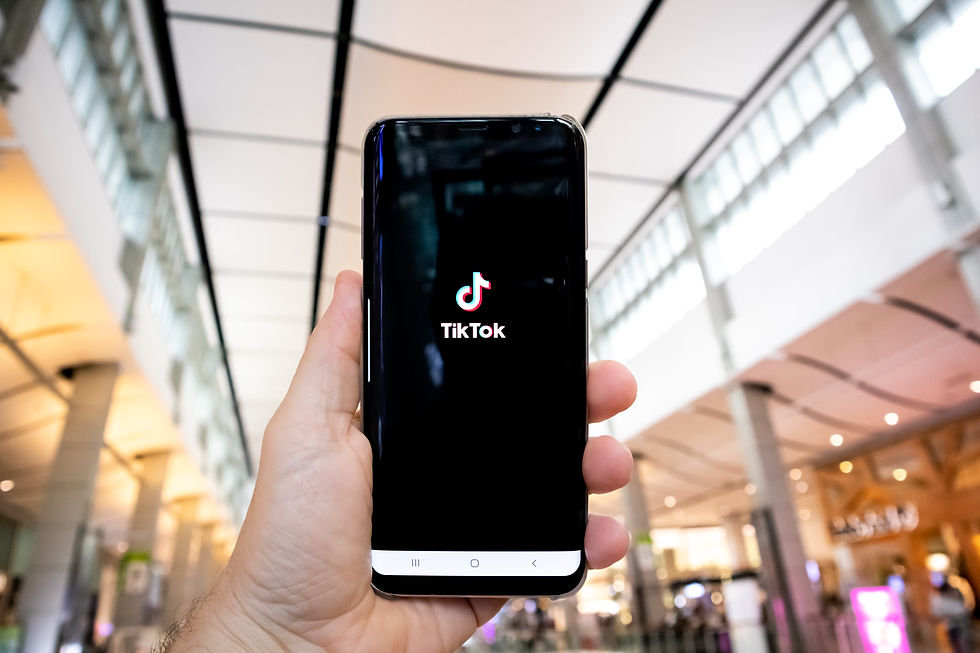Tariffs, TikTok, and COVID-19: U.S.–China Relations
- Audrey Kim
- Oct 24, 2020
- 4 min read

The COVID-19 pandemic originated in China and spread to the U.S., one of the sources of tension between the U.S. and China in an ongoing trade war. (KOBU Agency/Unsplash)
China and the United States — the world’s greatest economic superpowers — have experienced considerable fallout over the past few years. President Donald Trump and President Xi Jinping initially established a promising relationship after the former was elected in 2016, but beginning in 2018, the countries began engaging in trade wars and other political disagreements. The coronavirus would only add fuel to the fire when it was declared a pandemic in March 2020.
Tariffs and Trade Wars
For years, the U.S. and China have maintained a partnership on a solely economic basis. The two countries signed a ten-part agreement to expand trade and products of services between Beijing and Washington in April 2017. U.S. Commerce Secretary Wilbur Ross even stated that the relationship was hitting a “new high.” However, in March of the following year, the Trump administration placed tariffs worth 50 billion dollars on Chinese imports. In turn, the Chinese government placed tariffs on more than 500 U.S. products in July.
The trade war had only escalated by May 2019. Both countries increased tariffs on the other’s respective goods, President Trump reasoning that the high costs imposed by tariffs would persuade China to make a favorable deal with the United States. The two countries did eventually come to an agreement, with the ‘Phase One’ trade deal being signed on January 15th, 2020; but only two months later, COVID-19 was declared a global pandemic by the World Health Organization (WHO). This greatly deteriorated U.S.–China relations, with many critics believing that the countries had passed the point of no return.
How have Americans reacted to COVID-19?
The pandemic has negatively affected the American public’s perception of China. Recent polling done by the Pew Research Center revealed that 78 percent of the American public blames China for the spread and repercussions of the virus. The government has also taken to voicing their frustrations: President Donald Trump has mockingly acknowledged the pandemic as the “China Virus” more than once. These feelings of distrust have been reciprocated by the Chinese government.
“With global anti-China sentiment at its highest level in decades, Chinese officials have indicated an interest in exploring potential offramps to the current death spiral in U.S.–China relations,” Jessica Chen Weiss said, who is a political scientist at Cornell University, where she studies Chinese foreign policy and public opinion.
TikTok and WeChat

Relations between the U.S. and China are further strained by the Trump administration's proposed ban of TikTok and WeChat. (Oliver Bergeron/Unsplash)
Aside from economics and the global pandemic, another matter has caused conflict between the two countries: the popularity of TikTok and WeChat, two Chinese apps believed to hide a sinister government plot. Back in August 2020, Donald Trump released executive orders declaring that TikTok and WeChat would be blocked from processing transactions for U.S. citizens and from being downloaded in U.S. app stores starting on September 20, due to security concerns. Trump later stated that TikTok would face a complete ban if it did not sell to a U.S. company by November 14.
According to the Trump administration, it is in the country’s best interest to cut off a potential “mouthpiece” of the Chinese government. In response, TikTok stated that the company does not give the Chinese government access to U.S. users’ personal information. Additionally, WeChat claimed the ban was racist in nature, saying in a filing that it “singles out people of Chinese and Chinese American ancestry and subjects them and people who communicate with them to disparate treatment on the basis of race, ethnicity, nationality, national origin, and alienage.” In the end, a judge temporarily blocked the orders from going into effect, but the initial action shocked both American and Chinese citizens alike.
Despite being based in China, U.S. citizens love TikTok and actively participate in it. People of all ages, races, and backgrounds use TikTok to interact with creators they relate to or simply enjoy watching. The app also allows users to make their own funny skits, hop on trends, and “duet” with other users. Though initially being labelled as “cringey,” TikTok rapidly gained traction and is now home to 800 million active users worldwide. When the news of the potential TikTok ban surfaced in the media, popular TikTok stars were quick to comment. Ariel Martin, known to her 34.5 million TikTok followers as Baby Ariel, expressed the bitterness of the community when she tweeted, “i hate Donald Trump.”
WeChat users were equally upset by Donald Trump’s plan to ban the apps. Chinese Americans recently told the Guardian that WeChat has been a lifeline connecting them to family and friends in China. “It’s really sad,” said one user in Oakland, California. “I moved here 26 years ago and I have only been able to reconnect with friends and family in China recently because of WeChat. Without it, I will be completely cut off.”
With the 2020 presidential election approaching, the future of the U.S.’s relationship with China remains unclear. But considering the continued existence of both TikTok, tariffs, and the pandemic, the fates of the two countries appear to be intertwined.
Comments